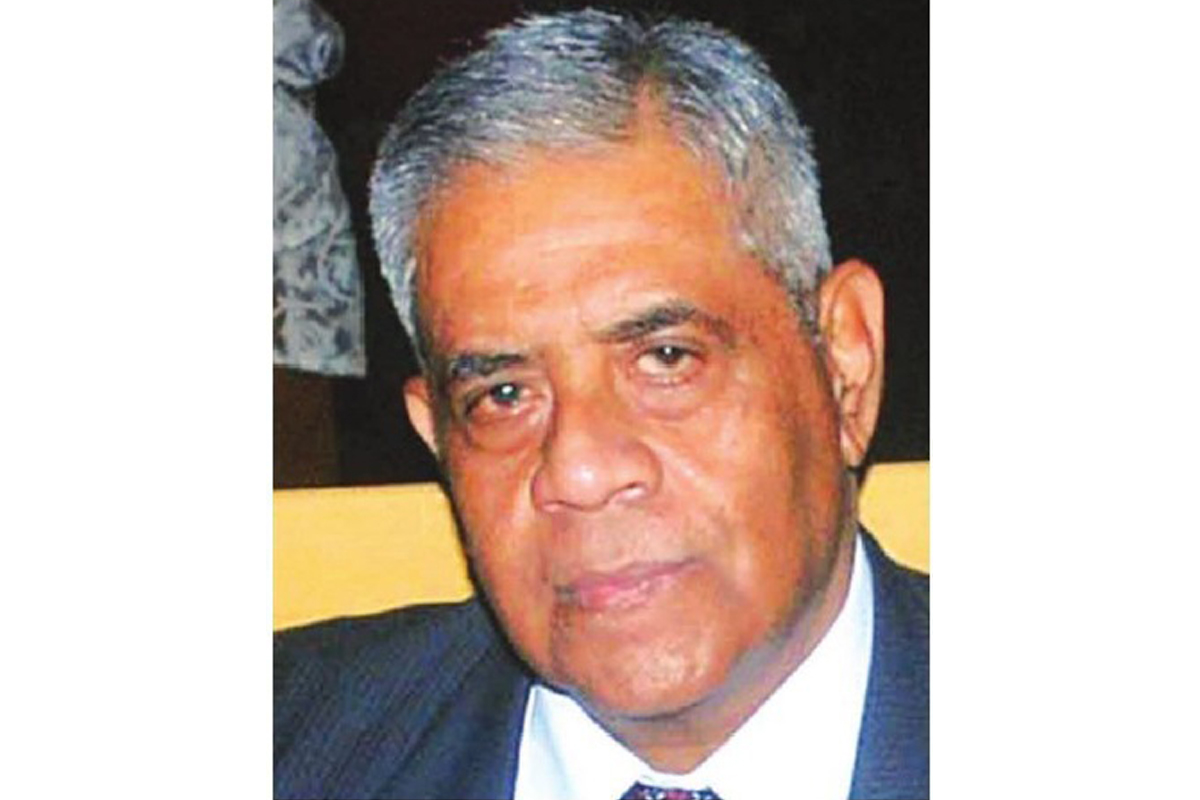Delhi Police arrest Siliguri man for fake ID cards
Delhi Police today arrested Jayanta Barman from Siliguri on charges of producing fake Indian voter ID cards.
In a career that spanned more than half a century, and all of it with The Statesman, Keith touched lives as few journalists — before or after him — would.

(SNS)
It isn’t only old timers at The Statesman, and regular readers of this newspaper, who will remember with fondness the part that Keith Flory, who passed away early on Tuesday, played in their lives. In a career that spanned more than half a century, and all of it with The Statesman, Keith touched lives as few journalists — before or after him — would.
From the day he stepped into the newspaper in May 1969 until the time he forced retirement on himself in August 2019, after having tried to break the shackles of his affection for the paper on a few earlier occasions because of illhealth, Keith was not just a consummate professional but possibly the last of a small group of gentlemen journalists in an increasingly ignoble profession.
Many were the parliamentarians of the 1980s and 1990s who felt their contributions in the House were properly acknowledged only when they found mention in Keith’s weekly round up of proceedings. The late S Jaipal Reddy, a wordsmith of some distinction, once told me “a sentence of his praise means a week of contentment.”
Advertisement
Others recounted how his criticism – always genteel and always fair – helped them to hone their skills and indeed made some of them seek him out to ask after a speech in the House whether they had made a mark. Defence – his other “beat” – saw a legion of generals, admirals and air marshals admire his informed coverage of military matters.
He had special affection for all the uniformed services; a former Commissioner of Delhi Police wrote to me this morning after getting news of his death that “his lyrical writings and atmospherics” would be greatly missed and that he enjoyed and appreciated the worth of numerous police functions “more through his writings the next morning.” But besides these areas of specialisation, Keith had many other loves.
Boxing was one, football and cricket, to a lesser extent, others. His comments on the occasional turmoil in the Church forced introspection and his writings on wildlife and conservation were provocative. Keith was a mentor, guide and friend to at least three generations of journalists at The Statesman, a role he took up on being made Chief Reporter of the paper in early 1979.
His stewardship of the reporters’ room was never overbearing and those who worked with him – including this writer – for the seven years he held charge will always remember the warmth and conviviality of those days. For nearly two decades and until his retirement, Keith was an erudite and prolific leader writer, shaping opinion on politics, defence, the judiciary and affairs of the national capital but sometimes, when the mood took him, even the plight of the poor dhobi.
His comments were precise; informed; sometimes critical but always fair. They would be filed well before deadline, with every “i” dotted and every “t” crossed and seldom merited use of the blue pencil. At a personal level, I had so much to thank Keith for. Two months into my job at The Statesman, I didn’t know who to turn to when my wife appeared to miscarry in the middle of a summer night four decades ago.
Those were the days of landlines and in desperation I rang Keith. Within five minutes, he called back to say that I should rush her to Jangpura where he had roused a gynaecologist from her slumbers and coaxed her into seeing my wife. By the time we reached the nursing home, Keith was already there, and he stayed with me until the emergency was resolved around dawn.
Perhaps fittingly, my son’s first playpen was one that Keith and Shirley’s daughters – Dianne and Deirdre – had used. Many were the walks we took, sometimes from Town Hall through Jama Masjid (for he then covered the Delhi corporation), or in Connaught Place after lunch, and each excursion was an education that provided nuggets on the city’s history, or on the lesser known eateries that dotted its lanes.
Over the years, I learnt to seek his counsel on professional and personal matters. His advice was always measured, and invariably sound. As the curtain comes down on a life lived with dignity and grace, it is time to say au revoir to an exceptional mentor and colleague.
Rest in peace, dear friend!
(The writer is Editor, The Statesman)
Advertisement